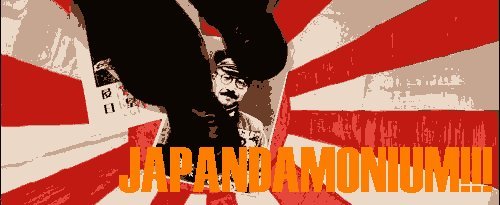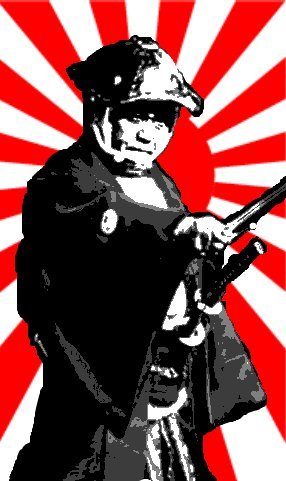Subtext, Subtitles
Couldn't even stand to finish watching this Monty Clift & Liz Taylor movie I got called A Place in the Sun, which looked promising enough went mostly like this and this with a little bit of this thrown in to make things move even more slowly. The one good moment of it is a scene where cops interrupt Monty and his homely non Liz Taylor girlfriend while they're making out in a car on (ah, yesteryear Americana), and there's this great one-off line where the cop's asked what they're doing and Monty says, after one of his poignant, unreadable Monty Clift pauses, "talking." So the cop fires back this one really funny line with a total no-nonsense face: "Look here boy," he says, "they've invented the house. It's a very good place to talk in. You'd better get back to yours." It's the best line in a movie filled with darling, i loved you since the moment i met you...maybe even before i met you. BUT IT'S NOT THE SAME LINE IN JAPANESE!!! Gosh darn Japanese subtitles seem to work hard at killing all the characterizations in our good movies and flattening out everyone's lines to the shortest approximate statement instead of remaining at all true to the intent of anyone's expressions. In the case of A Place in the Sun, this gem of a line becomes simply, "if you are talking, other places are better for doing it--go home." What happened to "they invented the house?!" It's no wonder most locals don't like any of the good movies from foreign countries; the subtitles kill all the substance!
Japan tends to do a much better job with overdubbing than subtitling in terms of remaining true to the original scripts. Of course, dubbing films is akin in the artistic sense to throwing a bag of puppies off a cliff. Besides, it's not like anyone here in Japan would ever dream of suggesting that foreigners watch The Seven Samurai in English or Italian or French, for goodness sakes. It's a Japanese movie, in Japanese, and it's a superb piece of art. Overdubbing it into another language would be like going to a museum and deciding you like blue more than red so they should go ahead and photoshop Guernica for you. Art doesn't really work like this.
Now this all said, there does seem to be an exception where animation is concerned. Japan's famous for its cartoon industry, but foreigners often see them overdubbed into other languages, and this might actually be the best thing for everyone concerned. If you watch enough anime without letting it destroy your soul and social life, you notice that there seem to be about four or five actors doing all the voices in the industry. This isn't true of course, but most anime relies heavily on a very narrow set of voicing archetypes that can make most shows deftly personality-free. Dragonball Z is an incredibly boring show in Japanese because all of the mains sport identical Macho Fighter voices, while the women use Woman Voice #2, and the bad guys all have Baddy Voice, unless they're robots, in which case it's Baddy Robot Voice. Actioney anime can be much more fun to watch in English because our industry tends to have a much more diverse voice acting pool (there are exceptions, to be sure). Conversely (and rather unexpectedly), the voicing archetypes and rote emotional expressions in Japanese are perfect for lots of American animated films. I just watched The Incredibles in Japanese (bus ride, not my choice) and boy, it was great! Who'd a thought? That's a movie whose original voice acting wowed the boots off everyone, myself included. Now, take something less, er, incredible, like Tim Burton's The Corpse Bride--a movie that did almost nothing but make me yawn in English--and it becomes a freaking masterpiece in Japanese! Seriously, it's an unbelievable transformation. Even the songs are miles better--it becomes a real adventure in Japanese. Maybe the language works better for fake people, or maybe the Japanese dubbing industry just needs to get its act together; either way, don't rent A Place in the Sun, but get your hands on a Japanese Corpse Bride ASAP!


No comments:
Post a Comment